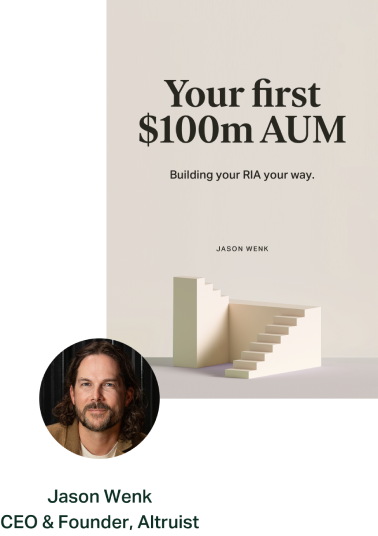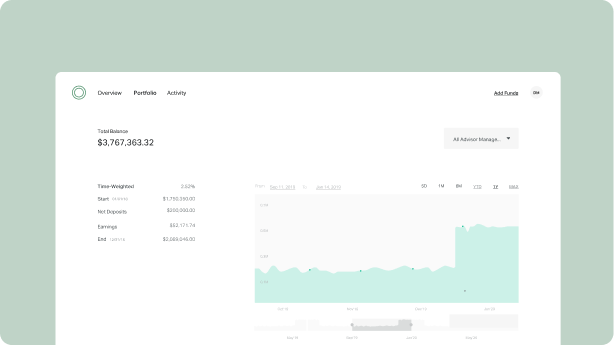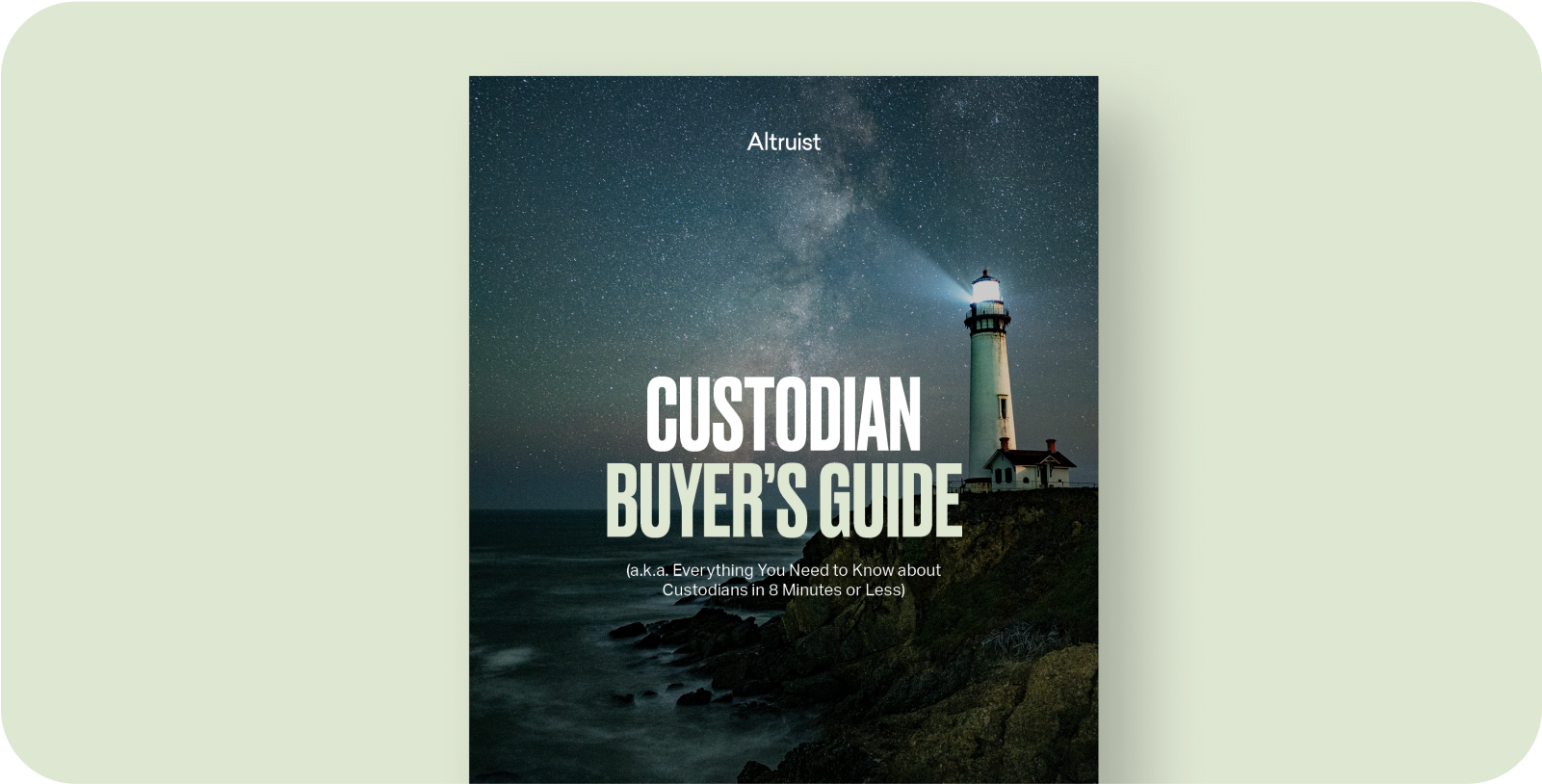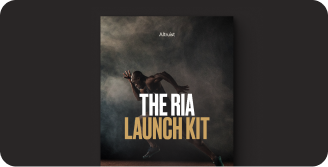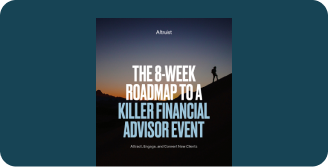At one point or another, many wirehouse advisors will ask the question: Should I leave my firm and start my own practice?
We've witnessed many advisors set off on their own and describe how much happier they were running their own firms.
We hosted “Going Independent: Fireside Chat,” where we had the privilege of speaking with René Nourse of Urban Wealth Management, Phil Tepner of Breakout Private Wealth, and George Acheampong of Capitalwize and Pocket Advisor. The trio generously shared their stories of deciding to go independent and some words of wisdom for fellow advisors looking to break away.
I had to break out to be able to create a practice and a firm that could serve and show up for the people that I wanted to represent,” George says.
Starting a business can seem scary, but don’t let fear stop you. Here’s the advice we got from René, Phil, and George about how they built the confidence to take the leap and go independent:
Remember the bottom line.
We spend the majority of our time as advisors building a book of business. It’s our crown jewel—the sum of all the blood, sweat, and tears (and phone calls, meetings, emails, and events) it takes us to achieve a healthy, sustainable business.
When breaking away and going out on your own, it’s normal to fear losing some of those precious relationships most advisors guard dearly. It’s almost certain you will lose some.
But don’t forget about the clients and profits you could gain from breaking away, as well.
Let me remind you of some simple economics of this shift. You may find yourself running a business where you make more money through each relationship because of reduced overhead costs. That higher profit can quickly make up for what you might lose in clients who may not follow you to your firm.
You can also pass on those lower costs to clients in the form of lower fees, with the goal of improving clients’ outcomes and making you more competitive. You have the potential to gain new clients in the process, too—and you can advise them on your terms and reap even greater rewards for you both.
You don’t have to do it alone. It takes a village.
The resources at big firms can be tremendous in a variety of areas.
I’ve worked for firms with in-house colleagues who were former CPAs and Trust & Estate attorneys. Having people like that at your disposal to help think through solutions for client issues unquestionably adds a lot of value for advisors and clients.
You won’t likely have this kind of resource in your business as an independent RIA in your first year breaking away. But you can replicate many of the benefits of the types of resources you’re used to at big firms by using the right technology and knowing the right people.
The most successful business owners fill their team with experts at doing what they can’t do themselves.
Really get comfortable with the people that you want on your team,” says Phil. “There's a lot of really good people out there.”
Whether it’s outsourced compliance, a marketing team, or portfolio management, your goal should be to stand in the middle of these professional experts and give direction—not to be a one-person shop.
That means hiring consultants, asking your peers and community for recommendations and advice, and leveraging technology to automate time-wasting tasks. Then you can focus on your expertise—whatever that may be. Leave the rest up to experts who will better allow you to grow your business and maintain healthy relationships.
And remember that the technology at a smaller firm can sometimes create a more streamlined experience that clients prefer.
At the big firms,” Phil points out, “the paperwork is brutal.”
Your clients have confidence in you.
Companies can spend decades establishing consumer trust. Some institutions in the financial services world will always hold a certain stature. Some clients might place more faith in the name on the side of a building than in an advisor they’ve grown to know inside it, and that risk is scary if you’re thinking about leaving that building for good.
But remember, as George points out,
You are the advisor. They literally trust you with their money. So they will trust you if you have a direct conversation around what you need from them in order to move things along.”
On a basic level, brand loyalty to big firms is about security.
Many clients don’t realize the same regulatory oversight they get at well-known firms apply to independent RIAs, too. All independent RIAs must be registered either with the Securities and Exchange Commission (SEC) at the Federal level, or with their state’s securities regulatory authority (unless they are granted an exemption from registration). Additionally, the advisors who run them may also be registered with the Financial Industry Regulatory Authority (FINRA). Once they know this, the chances are that your clients will feel more confident breaking away with you.
Most independent custodians RIAs might use are insured by the Securities Investor Protection Corporation (SIPC). This federally mandated, non-profit, member-funded United States entity was created under the Securities Investor Protection Act of 1970, requiring most U.S.-registered broker-dealers to be members.
Be purposeful of who you want to serve.
Maybe you’re like René, who knew exactly who she wanted to serve when she left the wirehouse she was at, or perhaps you’re still trying to find your niche. Whatever the case, you can take advantage of unique marketing channels that can effectively reach that particular audience by targeting a niche.
Don’t be afraid to be particular.
You might have to say no a few times. Some people might say no to you. But you will get there,” says George. “And you will be able to build that business that you deserve with the people that you want to serve most.”
This personalized strategy is more cost-effective than the broad-based, generalized marketing most financial advisors find ineffective. Whatever your niche, become hyper-aware and hyper-disciplined on who you say yes to and what it looks like to build your ideal business.
Build your confidence to break away
Unsure whether you’re ready to leap? Find the confidence to go independent with our easy-to-follow checklist of everything you need to do to form your own RIA.
